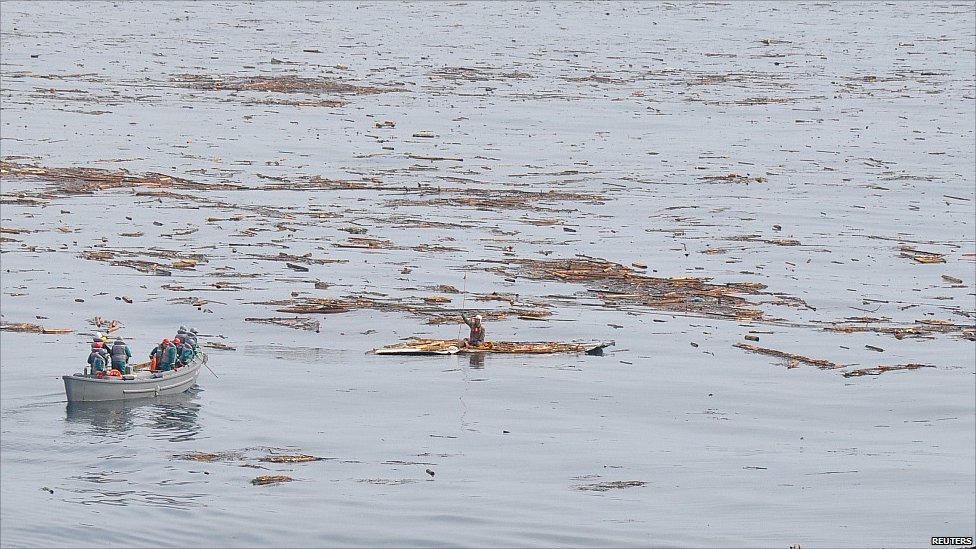It's important to note that the Chernobyl reactor design is completely different from a boiling water reactor. You really can't compare the Chernobyl accident to what's happening how.
To add, something that seems to be overlooked in the media is that all the nuclear reactors at the Fukushima Dai-Chi site shutdown automatically as designed when the earthquake occurred. The problems began when backup power was later lost, presumably due to the tsunami flooding the emergency generators (bad design oversight, imho) and decay heat removal capability in the cores was compromised. The Chernobyl reactor was in an operating state when its accident occurred and involved a sudden surge of power generation in the core.
The Japanese plant staff can get a reasonable idea of the extent of core damage monitoring the gaseous effluent. Elevated levels of hydrogen and the presence of other fission product elements are indicative of fuel pin cladding (zircaloy) damage but not necessarily fuel pellet melting.
Wikipedia has a discussion of the temperature effects on fuel during a core-related accident.
http://en.wikipedia.org/wiki/Behavior_of_nuclear_fuel_during_a_reactor_accident
Some differences to keep in mind, imho.
Three Mile Island is/was a pressurized water reactor design in which the core is normally completely submerged in liquid water (single phase flow under pressure) during operation and during normal shutdown conditions. The reactor automatically shut down but core damage resulted when decay heat removal capability was compromised by a combination of human errors and equipment malfunctions.
Chernobyl is/was a water cooled reactor design which uses graphite as part of the power control scheme (neutron moderation) during normal operation. The accident occurred as a result of deliberate actions to bypass built-in safety features (procedural and equipment-related) and inadequacies in a special test procedure. The dispersal of radioactive material during its event was exacerbated by burning graphite.
The Japanese reactors at the Fukushima Dai-Chi site are boiling water reactors in which, as the name implies, the core is partially immersed in liquid water and partially surrounded by a steam/water mix (two-phase flow under pressure) during normal operation. During normal shutdown the core is completely flooded with liquid water.
I give credit to the Japanese for pre-emptively pumping seawater into a 40 year-old power plant to ensure adequated decay heat removal. They didn't lose a lot of precious time trying to come up with a way to save the equipment. Clean-up is going to be a multi-year effort, but I believe they made the best decision given the circumstances. The plant staff is still in the middle of the crisis addressing the other affected units and I wouldn't be surprised if there isn't more seawater being pumped before the situation is stablized.
FWIW, most, if not all, U.S. nuclear power plants have the ability to flood the reactor containment building with water if all other means of decay heat removal fail. Also, hydrogen gas is often used to cool the main generator during normal operation and a rupture of one of those lines can result in turbine building fire which may explain the first reported incident of fire at the power station.
A layman's explanation of what is known so far regarding the Fukushima reactor issues:
http://theenergycollective.com/barr...d-accurate-explanation?ref=node_related_posts


